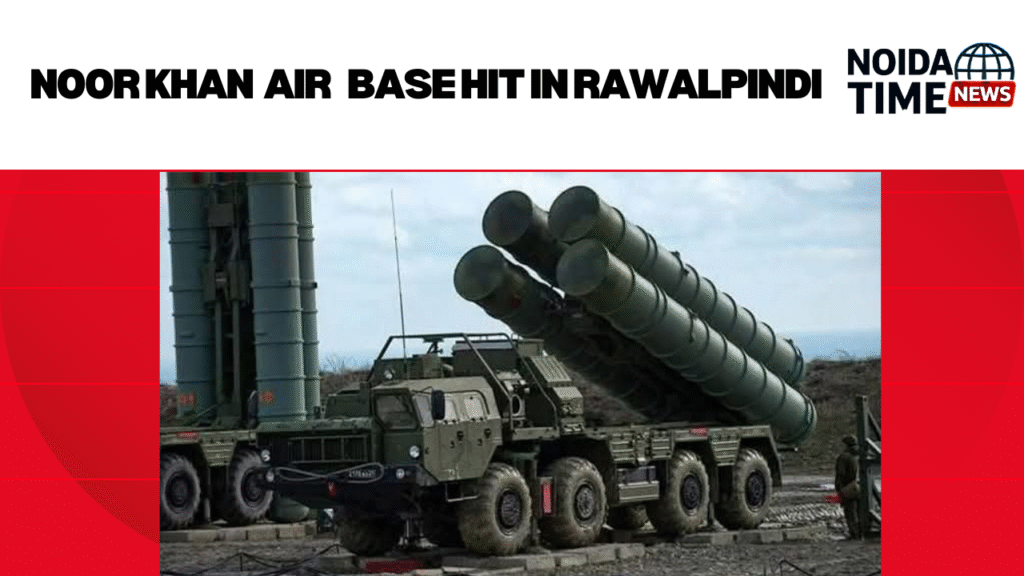Bhai, yeh kya ho gaya? Just when we thought things couldn’t get more intense, India dropped a bombshell—literally—by targeting the Noor Khan Air Base in Rawalpindi as part of “Operation Sindoor.” This isn’t just another border skirmish; it’s a full-on escalation that’s got everyone from Delhi to Islamabad on edge. Let’s break it down in desi style, so you know exactly what’s happening.
What’s Operation Sindoor All About?
Picture this: after the horrific Pahalgam terror attack in Jammu and Kashmir on April 22, 2025, where 26 people, mostly tourists, lost their lives, India said, “Bas, ab aur nahi!” The government launched Operation Sindoor, a series of precision strikes targeting nine terrorist hideouts—four in Pakistan and five in Pakistan-occupied Kashmir (PoK). These weren’t random hits; India went after big players like Jaish-e-Mohammed, Lashkar-e-Taiba, and Hizbul Mujahideen, groups we’ve heard about in news channels for years.
The operation was like a surgical strike on steroids, using missiles and drones to take out terror camps without touching Pakistani military bases—well, mostly. The goal? To send a message that India’s had enough of cross-border terrorism. Foreign Secretary Vikram Misri called it “measured, non-escalatory, proportionate, and responsible.” Sounds like something straight out of a Bollywood action flick, right?
The Noor Khan Air Base Attack: What Went Down?
Now, here’s where it gets spicy. The Noor Khan Air Base, a major hub for the Pakistan Air Force in Rawalpindi, was hit by missiles in the wee hours of May 10, 2025. According to News18, the strikes happened between 03:11 IST and 03:53 IST, catching everyone off guard. Two other airbases—Rafiqi in Shorkot and Murid in Chakwal—were also targeted, but Noor Khan is the big name here.
Intelligence sources say India used air-to-surface missiles and drones, ensuring pinpoint accuracy. Pakistan’s military confirmed the attack but downplayed the damage, saying their airbases are still operational. Still, the fact that a military base was hit has everyone wondering: is this a new Pulwama-Balakot moment?
| Detail | Information |
|---|---|
| Location | Noor Khan Air Base, Rawalpindi, Pakistan |
| Date and Time | May 10, 2025, 03:11–03:53 IST |
| Type of Attack | Missile and drone strikes |
| Operation | Operation Sindoor, India’s retaliatory strikes |
| Other Targets | Rafiqi Air Base (Shorkot), Murid Air Base (Chakwal) |
| Source Confirmation | Pakistan Army, Indian intelligence sources |
How’s Everyone Reacting?
India’s stance is clear: “We did what we had to do.” The Indian Army said the strikes were a direct response to the Pahalgam attack, targeting the “terrorist infrastructure” responsible for planning attacks against India. PM Narendra Modi held a high-level meeting, and the message was loud and clear—national security comes first.
Pakistan, on the other hand, is fuming. They’ve called the strikes an “act of war” and claimed civilian casualties, including women and children, though these claims are yet to be verified. The Pakistan Army has promised a “befitting response,” and social media is buzzing with heated exchanges. It’s like watching a cricket match where both sides are playing to win, but the stakes are way higher.
What Does This Mean for India-Pakistan Ties?
Arre, yeh toh purana dushmani ka kissa hai, but this time it’s different. The strike on Noor Khan Air Base has taken things to a new level. Remember the 2019 Balakot airstrike? This feels like that, but with bigger consequences. Both countries are nuclear powers, so the world is watching with bated breath. The UN Security Council has urged both sides to chill, but with Pakistan vowing retaliation, peace seems like a distant dream.
On the ground, tensions are sky-high. India’s borders are on high alert, with the Army and Air Force ready for anything. Pakistan’s shelling in places like Poonch and Rajouri has already caused civilian deaths, and the Line of Control (LoC) is hotter than a Delhi summer.
India’s Security Game Plan
Back home, India’s not taking any chances. Airports in northern cities like Delhi, Chandigarh, and Amritsar are on high alert, and air raid sirens have gone off in some areas. The government’s told everyone to stay calm but vigilant, kind of like when your mom says, “Sab theek hai, par sambhal ke rehna.” The Indian Air Force’s S-400 defense systems have been intercepting Pakistani drones, and warships are deployed along the coast.
Defence Minister Rajnath Singh met with the Army, Navy, and Air Force chiefs to review the situation. Meanwhile, PM Modi’s team is working overtime to keep the nation informed and secure. It’s like the whole country’s on a war footing, but with a cool head.
The Bigger Picture
This isn’t just about Noor Khan Air Base or even Operation Sindoor. It’s about the bigger fight against terrorism and the messy India-Pakistan relationship. For us in India, it’s personal—Pahalgam wasn’t just a news headline; it was a tragedy that hit home. But war isn’t the answer either. As both sides flex their muscles, the hope is for dialogue to take over before things spiral out of control.



